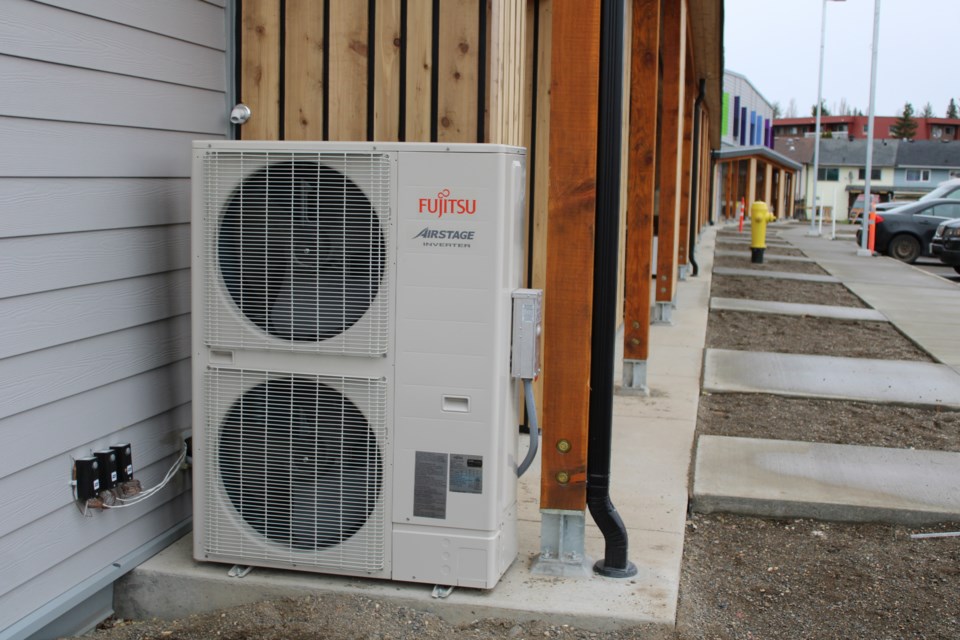B.C.’s Civil Resolution Tribunal has ordered a Richmond strata to remove most of the fines it levied against an owner after he installed a heat pump.
The case came down to whether there had been an agreement that the heat pump had been approved and a lack of quorum at a meeting of the council where the complainant was vice-president.
In a June 18 decision, tribunal member Michah Carmody said Sina Shakibaei installed a “mini-split” heat pump on the patio outside his ground-level unit. The strata has imposed at least $11,600 in fines against Shakibaei’s account for the heat pump, said the ruling.
Shakibaei said he had the strata’s permission to install the heat pump based on an alteration and indemnity agreement. He sought a tribunal order that the strata remove the fines from his account and an order that prevents the strata from removing or forcing him to remove the heat pump.
He further sought $15,000 in damages for what he claimed was the strata’s "significantly unfair" treatment.
The strata, however, claimed the agreement was not valid because the strata council never approved the heat pump.
“If the agreement is valid, the strata says it has the right under the agreement to demand that Mr. Shakibaei remove the heat pump,” Carmody said.
Shakibaei was the only owner with a heat pump, which he said was located on a patio designated as limited common property for his unit.
On Sept. 9, 2022, the strata wrote to Shakibaei about a complaint that an “unauthorized installation of a split air conditioning unit” had damaged the building envelope.
“It is now agreed that the air conditioning unit is a heat pump, capable of heating and cooling Mr. Shakibaei’s strata lot,” Carmody said.
The strata asserted the heat pump contravened a bylaw requiring owners to obtain strata approval from the strata before altering common property.
It also claimed the heat pump contravened a second bylaw saying a resident must not erect or fasten to the common property any “air conditioning devices […] or similar structure or appurtenance thereto.”
Carmody found a bylaw prohibited heat pumps because it prohibits “air conditioning devices.” That, Carmody said, includes a heat pump.
However, Shakibaei claimed the strata approved his heat pump as an exception to the bylaw.
The strata asked him to remove the heat pump by Sept. 16, 2022. It said if he failed to comply, it could impose a $200 fine, and could impose another fine every seven days if the contravention continued.
In response, Shakibaei gave the strata a copy of the Aug. 25, 2021 agreement that he said confirmed the strata’s approval for the heat pump installation.
“The strata did not accept the agreement and determined that Mr. Shakibaei contravened the bylaws,” Carmody said. “Records show that the strata fined Mr. Shakibaei on Nov. 8, 2022, and continued to fine him weekly until Dec. 12, 2023.”
By then, the fines had reached $11,600.
Carmody examined the meeting at which the approval was supposedly given and said there had not been the required quorum for a decision.
“I find that Mr. Shakibaei, as a council member and vice-president, knew or should have known that SJ and RC did not have authority to approve his alteration application without quorum,” Carmody said.
For that and other reasons, Carmody found Shakibaei did not have approval to install a heat pump on common property and had breached a bylaw.
“This means that the strata is free to require Mr. Shakibaei, at his sole expense, to restore the common property to its condition before the alteration,” Carmody wrote. “If he refuses, the strata may restore the common property and charge the reasonable costs back to Mr. Shakibaei.”
Carmody noted a strata cannot continue imposing fines once a tribunal proceeding has begun. As such, Carmody ordered the strata to reduce the fines to $2,600.
The other claims were dismissed.


